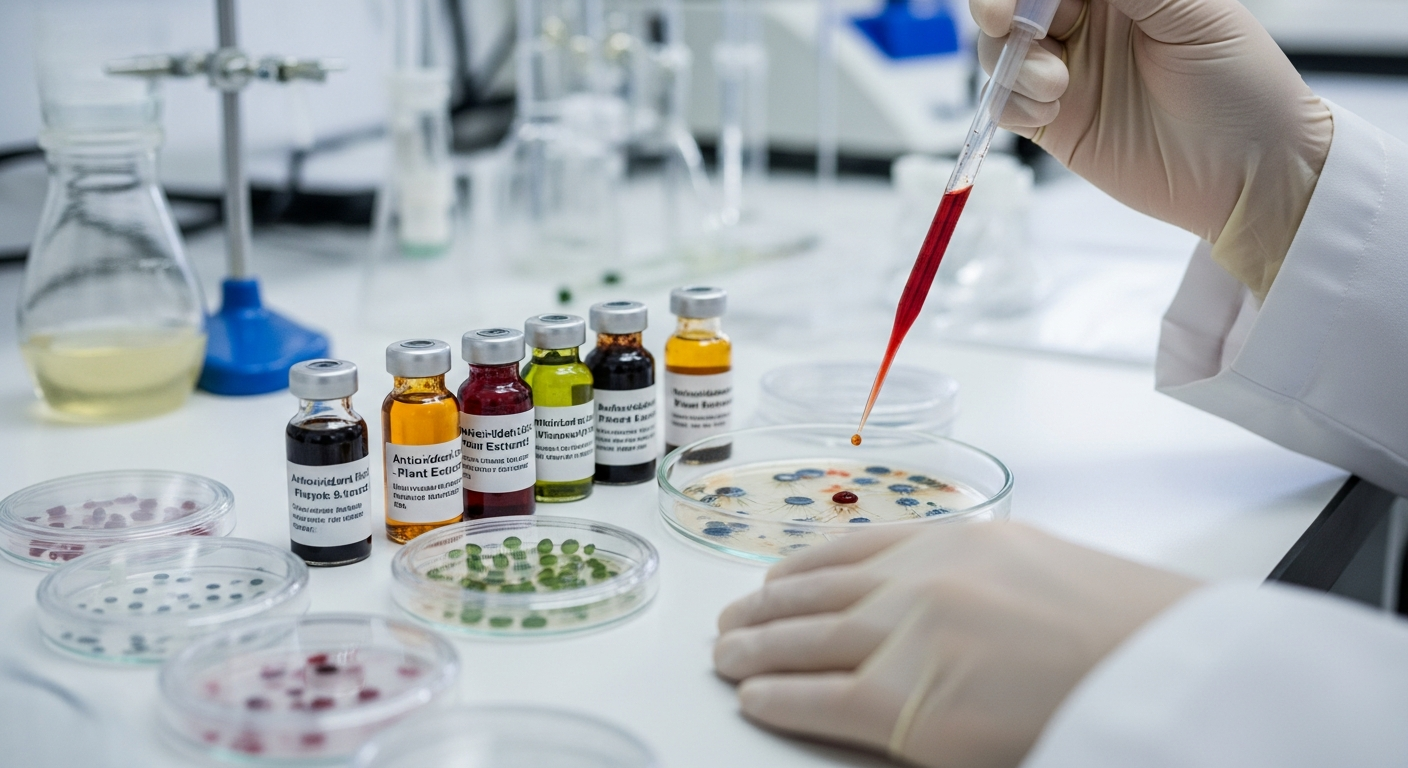Bioactive Peptides: The Future of Skincare
In the ever-evolving world of beauty and skincare, a groundbreaking innovation is taking center stage: bioactive peptides. These powerful molecules are revolutionizing how we approach skin health and aging, offering a level of precision and effectiveness previously unseen in topical treatments. As consumers become increasingly savvy about ingredient science, bioactive peptides are emerging as the holy grail for those seeking transformative results. This article delves into the fascinating world of these microscopic powerhouses, exploring their potential to reshape the skincare industry and redefine our expectations for youthful, radiant skin.

The concept of using peptides in skincare isn’t entirely new, but recent advancements in biotechnology have led to the development of more sophisticated, targeted peptides. These new-generation bioactive peptides can be engineered to mimic natural peptides found in the skin or to perform specific functions, such as stimulating collagen production, reducing inflammation, or improving skin barrier function.
Historical Context and Key Developments
The use of peptides in skincare can be traced back to the early 2000s when researchers first began exploring their potential in cosmeceuticals. Initially, peptides were primarily used for their ability to stimulate collagen production, with the introduction of palmitoyl pentapeptide-3 (now known as palmitoyl pentapeptide-4) in anti-aging products.
As research progressed, scientists discovered that different peptide sequences could target various skin concerns. This led to the development of more specialized peptides, such as:
- Signal peptides: These stimulate the production of key skin components like collagen and elastin.
- Carrier peptides: These help deliver trace elements like copper and magnesium to the skin, supporting enzymatic processes.
- Neurotransmitter-inhibiting peptides: These work by blocking the release of chemicals that cause muscle contractions, potentially reducing the appearance of expression lines.
- Enzyme-inhibitor peptides: These can help prevent the breakdown of existing collagen and other important skin proteins.
The latest breakthrough in this field is the development of bioactive peptides that can be customized to target specific skin concerns with unprecedented precision.
Current Industry Trends and Expert Analysis
The skincare industry is experiencing a significant shift towards more scientifically-backed, results-driven products. Bioactive peptides are at the forefront of this trend, with many experts hailing them as the future of anti-aging skincare.
Dr. Rachel Lee, a dermatologist specializing in cosmeceuticals, explains, “Bioactive peptides represent a paradigm shift in how we approach skin aging. Unlike traditional ingredients that often provide generalized benefits, these peptides can be designed to target specific skin concerns at a cellular level.”
The market for peptide-based skincare products is growing rapidly, with some analysts predicting it will reach $39.9 billion by 2027. This growth is driven by increasing consumer demand for effective, non-invasive alternatives to cosmetic procedures.
Another trend in the industry is the move towards personalized skincare. Bioactive peptides are particularly well-suited to this approach, as different peptide combinations can be formulated to address individual skin concerns.
Benefits and Industry Impact
The potential benefits of bioactive peptides in skincare are vast and varied. Some of the most significant include:
- Enhanced collagen production: Certain peptides can stimulate fibroblasts to produce more collagen, helping to improve skin firmness and elasticity.
- Improved skin barrier function: Some bioactive peptides can strengthen the skin’s natural barrier, leading to better hydration and protection against environmental stressors.
- Reduced inflammation: Anti-inflammatory peptides can help calm irritated skin and potentially improve conditions like rosacea and acne.
- Brightening and evening of skin tone: Some peptides can inhibit melanin production, helping to reduce hyperpigmentation and create a more even complexion.
- Wrinkle reduction: By stimulating collagen production and inhibiting muscle contractions, certain peptides can help minimize the appearance of fine lines and wrinkles.
The impact of bioactive peptides on the skincare industry has been profound. Many brands are reformulating their products to include these high-performance ingredients, and new peptide-focused brands are entering the market.
Moreover, the rise of bioactive peptides is driving innovation in delivery systems. Companies are developing new technologies to ensure these delicate molecules remain stable and effective when applied to the skin.
Challenges and Future Directions
While the potential of bioactive peptides is exciting, there are challenges to overcome. One of the main hurdles is ensuring that these peptides can effectively penetrate the skin barrier and remain stable in formulations.
Dr. Sarah Chen, a cosmetic chemist, notes, “The effectiveness of bioactive peptides largely depends on their ability to reach their target cells. We’re seeing a lot of research focused on improving delivery systems, such as using liposomes or nanoparticles to encapsulate peptides.”
Another challenge is the need for more long-term studies to fully understand the effects of prolonged use of bioactive peptides on the skin.
Looking to the future, researchers are exploring the potential of combining bioactive peptides with other cutting-edge technologies, such as 3D bioprinting and stem cell therapies, to create even more effective skincare solutions.
There’s also growing interest in developing peptides that can address broader health concerns beyond just aesthetics. For example, some researchers are investigating peptides that could help protect the skin against UV damage or improve wound healing.
As our understanding of skin biology continues to advance, it’s likely that we’ll see even more sophisticated and targeted bioactive peptides emerging in the coming years. This ongoing innovation promises to keep bioactive peptides at the forefront of skincare technology, offering consumers increasingly effective solutions for their skin concerns.
In conclusion, bioactive peptides represent a significant leap forward in skincare science. By harnessing the power of these microscopic molecules, we’re entering a new era of precision skincare that offers the potential for truly transformative results. As research continues and technology advances, bioactive peptides are poised to remain a key player in the quest for healthy, youthful-looking skin.






